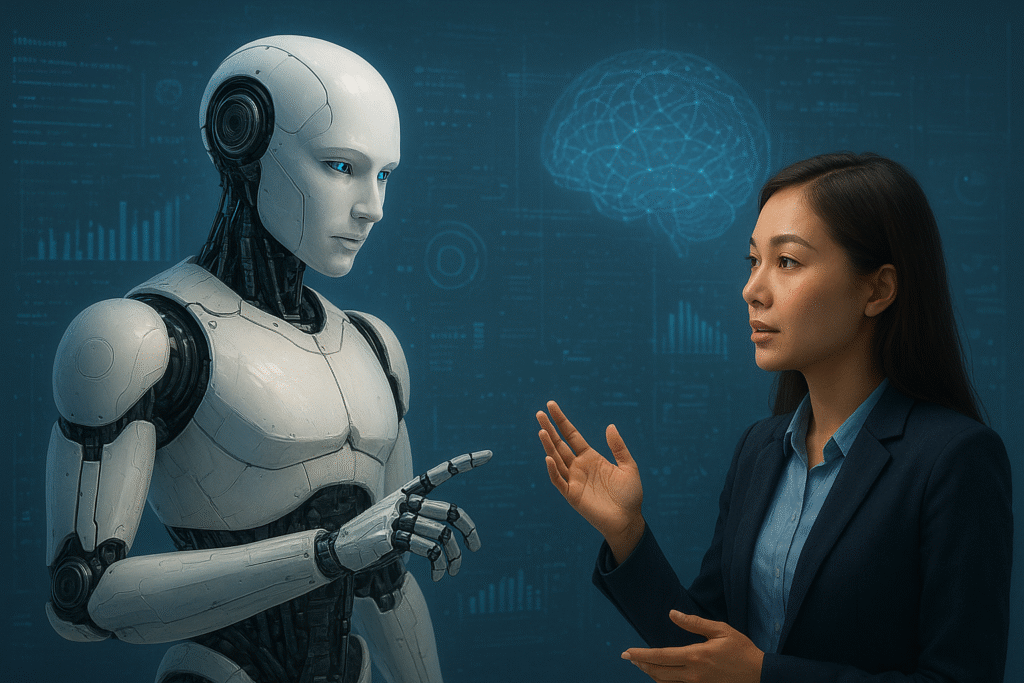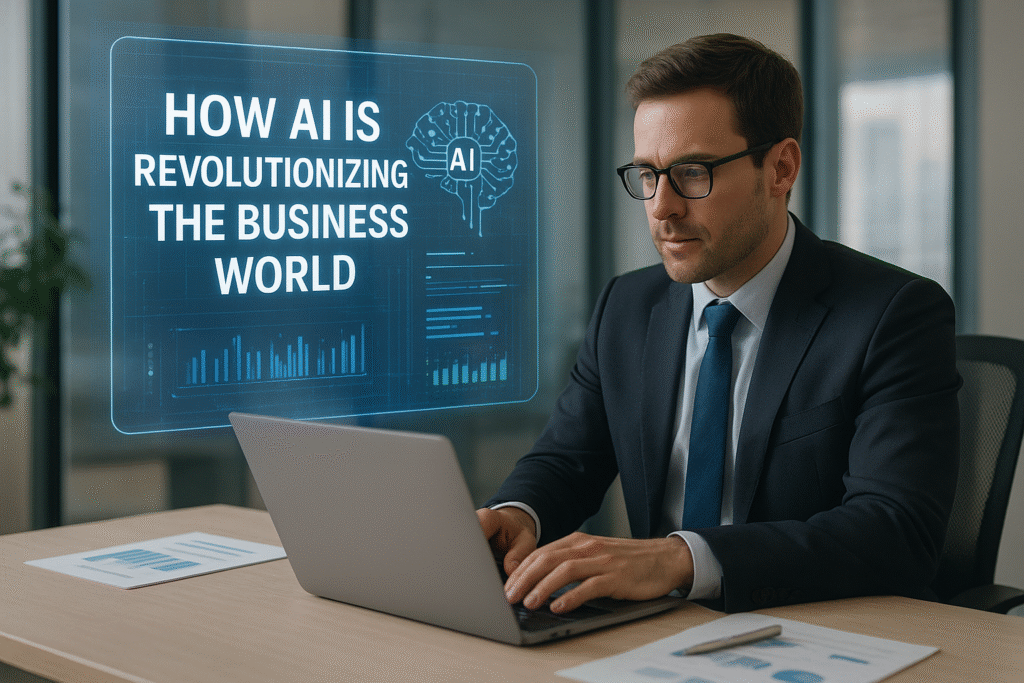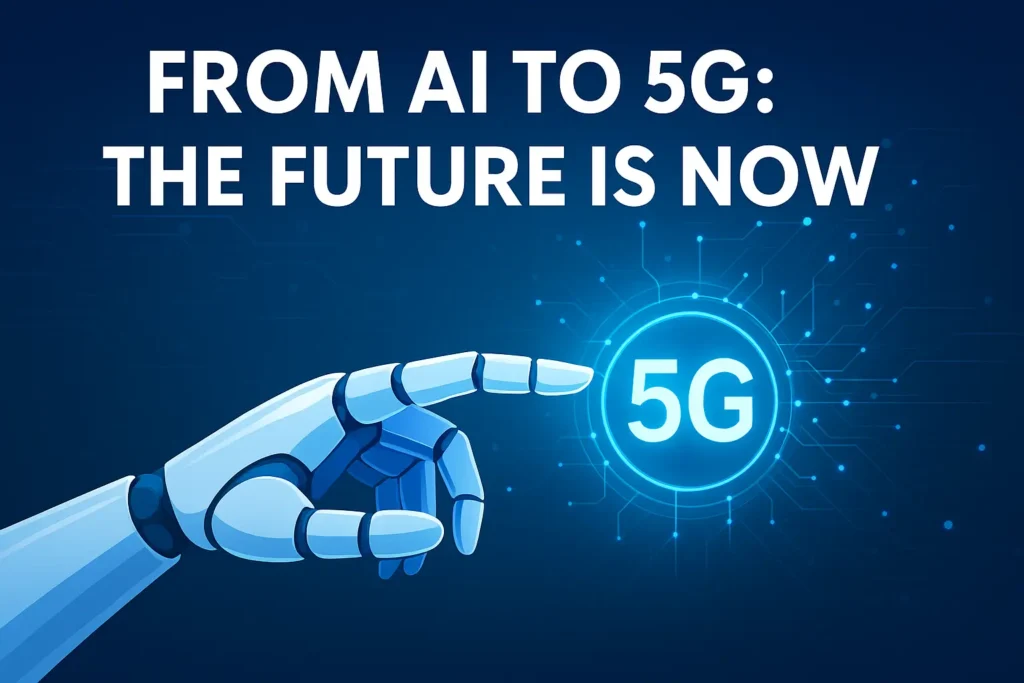Blog
The Power of Artificial Intelligence: How AI Is Shaping the Future of Technology

As we all know, in the modern era or in the coming time, artificial intelligence is an amazing technology that helps machines start thinking like humans to a great extent. This system will enable computers to perform various tasks such as voice recognition, language translation, and image processing very well. AI has played an important role in making human life easier, whether it is in mobile phones, online services, or machinery that is automated.
Artificial intelligence is playing an important role in every field, such as education and agriculture. Doctors use AI to diagnose diseases, and students in educational institutions also use AI. This technology not only saves time but also provides us with accurate results. In the future, artificial intelligence is going to become a fundamental means of human development that will take the world in a new direction.
What Is Artificial Intelligence?

A particular branch of computer science called artificial intelligence gives robots the ability to think, learn, and carry out activities that call for a human intellect. To make decisions and forecasts, it employs sophisticated algorithms, data analysis, and neural networks. AI systems become increasingly intelligent over time as they process more data.
AI technology powers some of the strongest inventions of our day, like speech recognition, facial recognition, and independent robotics. It is one of the most significant technologies of the twenty-first century because of its ability to manage huge amounts of data and gain knowledge from experience.
Key Components of Artificial Intelligence
AI is built on several key technologies, including machine learning, deep learning, and natural language processing. Machine learning allows systems to learn patterns and make decisions based on data, while deep learning uses neural networks to mimic how the human brain works.
Natural language processing helps computers understand human language, enabling chatbots and voice assistants to communicate effectively. These components together form the foundation of AI, empowering machines to perform complex real-world tasks intelligently and efficiently.
Real-World Applications of AI

AI is used across a wide range of industries. In healthcare, AI helps doctors detect diseases early and design personalized treatment plans. In finance, it prevents fraud and predicts market trends. In education, AI-based learning tools customize lessons for students’ needs.
Businesses use AI for marketing, customer support, and data analysis to improve efficiency and profits. AI is also essential in transportation through self-driving vehicles and navigation systems. These real-world applications demonstrate how AI simplifies life and boosts productivity globally.
Benefits of AI in Modern Technology
- AI has countless advantages; it improves productivity, accuracy, and creativity.
- Large amounts of data can be processed by AI systems in a matter of seconds, yielding insights that humans might overlook.
- In industries like healthcare, finance, and logistics, this results in quicker outcomes and better decision-making.
- Automation is another significant benefit. AI-powered tools handle repetitive tasks without human intervention.
- The ability of AI to learn and adapt makes it a key driver of progress in modern technology.
How AI Is Revolutionizing the Business World
AI is changing how businesses operate by improving productivity, reducing costs, and enhancing customer experiences. Intelligent systems analyze consumer behavior, enabling companies to provide personalized recommendations and targeted marketing strategies. Chatbots and AI-powered support systems provide 24/7 customer service, improving user satisfaction.

In industries such as manufacturing and logistics, AI automates production lines and supply chains, thereby reducing errors and increasing efficiency. The result is smarter business operations, faster growth, and greater innovation powered by artificial intelligence.
Artificial Intelligence & Machine Learning
Machine learning is the core of AI. It allows machines to improve automatically through experience. ML algorithms use data to identify trends, make predictions, and solve problems without human input. This makes it a crucial tool for industries relying on data-driven insights.
When combined with deep learning, machine learning enhances automation and enables powerful technologies like image recognition, autonomous vehicles, and speech translation. Together, AI and ML create intelligent systems capable of learning, adapting, and making real-time decisions.
Ethical Challenges in AI Development

As AI becomes more advanced, ethical concerns are becoming more specific. A major issue is data privacy. AI systems collect sensitive or personal data that could be misused if it is not appropriately handled. A concern is algorithmic bias, where AI decisions can unintentionally favor or discriminate against many groups. When designing AI models, developers should focus on transparency, fairness, and accountability. Ethical AI ensures that modern technology continues to serve humanity well, upholds trust, and prevents harm in the digital world.
Conclusion
Artificial intelligence is the current engine of creativity, not simply the future. It boosts output, encourages better decisions, and opens up opportunities for new companies in a variety of sectors. AI is now essential to progress and growth in a variety of fields, including business, education, and healthcare. It’s critical to use AI ethically and responsibly as we continue exploring its possibilities. We can create a more intelligent, equitable, and connected future for everybody by combining human creativity with machine intelligence.

